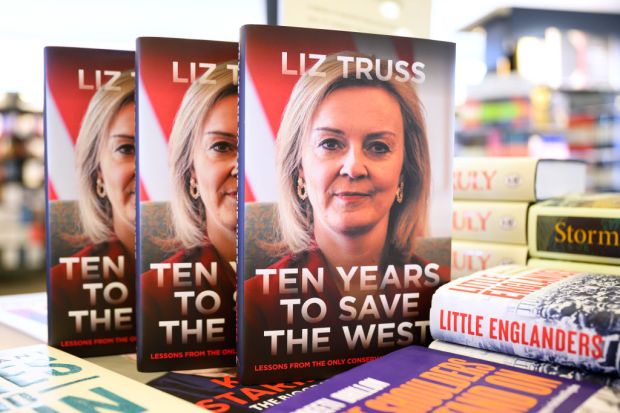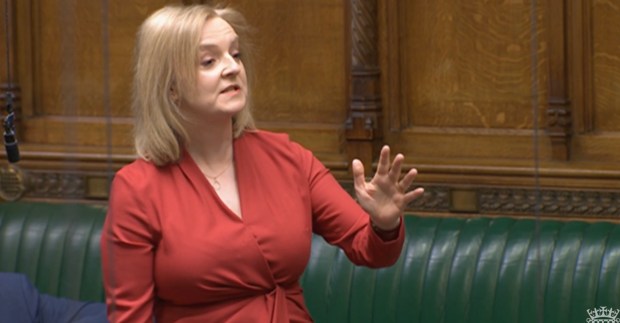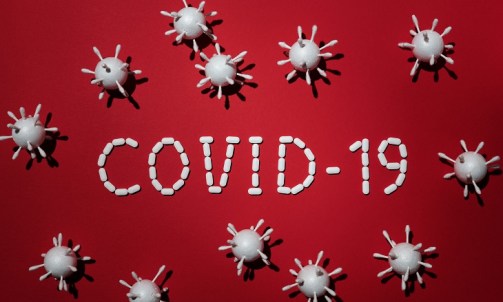Admirers of one of America’s great modern historians sat up and paid attention when Liz Truss told the Times in December that she read ‘anything’ by Rick Perlstein. In May, we nodded along with the interviewer from the Atlantic magazine who ‘saw a copy of Perlstein’s The Invisible Bridge on her shelf and thought it was ‘exactly the sort of book I would have expected her to read’.
For those who have never encountered his work, The Invisible Bridge is one part of Perlstein’s four-volume history of the United States from 1960 until 1980. The series covers the sixties’ cultural revolution, the race riots, police violence, America’s pointless and brutal war in Vietnam, and the energy crisis of the 1970s (and how well those pages read today). Above all else, Liz Truss’s favourite historian describes how Richard Nixon and Ronald Reagan came to dominate US politics.
Perlstein’s theme is the rise of the outsider right. Many of his contemporaries concentrated on the new social movements of the 1960s. Perlstein wanted to explain the triumph of the right-wing backlash that won real political power. Our next prime minister, barring an upset, has been following the playbook Perlstein described in minute detail.
In an interview with the Spectator‘s Katy Balls, a ‘Truss backer’ explained why the ‘negative’ Sunak campaign was failing. Tories did not want miserable facts, they said. ‘If people think there is an imaginary river, you don’t tell them there isn’t, you build them an imaginary bridge.’
You can find the source of that quote at the beginning of the Perlstein history on Liz Truss’s bookcase. He picks a conversation between Nikita Khrushchev and Richard Nixon in the late 1950s as it provides the perfect epigraph. The Soviet leader told the then US vice-president that politicians must create their own reality by pandering to the fear in their supporters’ minds.
‘If the people believe there is an imaginary river out there,’ Khrushchev said, ‘you don’t tell them there’s no river out there. You build an imaginary bridge over the imaginary river.’
Echoing Khrushchev and Perlstein, the source close to Liz Truss was telling the Spectator that the way to win was to find fairy tale solutions to Tory fears, and Sunak was a fool not to know it
The debt does not end there. Rick Perelstein is a man of the left, but he understands the power of the right. His histories offer much that a Conservative politician on the make can use.
Mobilise resentment
The battles between the supporters of Nixon and Reagan on one side, and the 1960s new left on the other, anticipated today’s cultural conflicts. In a perceptive passage, Perlstein argues that ‘when the people who felt like losers united around their shared psychological sense of grievance, their enemies felt somehow more overwhelming, not less’.
Nixon and Regan appealed to white electorates, terrified by racial and cultural change. Today’s Conservatives appeal disproportionately to pensioners, who have done well for themselves, generally, but can feel equally frightened.
The base Nixon and Reagan created won them elections and allowed the right to dominate. But their power did not make their voters feel secure. On the contrary and in a nod to our experience of 12-years (and counting) of Conservative rule, they grew ever more convinced that they were the victims of shadowy elites, and their leaders exploited that fear to gain re-election.
Perlstein says of Nixon that he understood that the future belonged to the politician who could tap into the nameless dread of the age. He won power by exploiting ‘the urge to make it all go away’; to make the world of anti-Vietnam demonstrations, women’s libbers, and black rights activists ‘placid again, not a cacophonous mess’. That description applies as well to today’s UK Conservatives.
Make their fantasies real
It is already commonplace to note that Truss’s plan to cut taxes and make up the shortfall with borrowing is a straight imitation of Reaganomics. The economist Truss has cited favourably says interest rates could go up to seven per cent (and then retracts under pressure), but she pretends otherwise, as Reagan did, and her audience no more cares today than Reagan’s did in the 1980s. Rather than be embarrassed by her duplicity ‘Truss backers’ boast about their ability to build imaginary bridges over imaginary rivers.
Never accept defeat
In the early 1960s liberalism dominated politics. The landslide defeat of the Republicans’ cranky right-wing candidate Barry Goldwater in the 1964 presidential election appeared to confirm that the future would bring the creation of a social-democratic welfare state (Lyndon Johnson’s ‘Great Society’) and a serious effort to erase the stain of American anti-black prejudice. In 1964, the paranoid and embittered Nixon seemed finished. Perlstein quotes newspaper columnists who celebrated Nixon’s political destruction with Dante Gabriel Rossetti lines: ‘Look in my face: my name is Might-have-been; I am also called No-more, Too-late, Farewell.’
Nixon went on to win two presidential elections, the second by a landslide.
Ronald Regan’s enemies dismissed him as a shallow, stupid, huckster. Reagan won two presidential elections, the second by a landslide. Today we hear Labour party sources say Liz Truss will be ‘will be easier to take down’ than Rishi Sunak. Dominic Cummings adds that Truss ‘is as about as close to properly crackers as anybody I’ve met in Parliament’.
Are they making the mistake of Nixon and Reagan’s enemies? For what it is worth I do not think Liz Truss will ever be a formidable politician. Her approval ratings are dismal, and she represents a continuation of the discredited Johnson administration rather than a break from it. The UK is growing poorer and unhappier. I cannot see how any Conservative leader can win the next election, let alone a niche figure who appeals to the party rather than the country. But what do liberal journalists know?
A running theme through Perlstein’s four volumes is the inability of the liberal mainstream to understand the right. With exasperated contempt, he writes of the ‘the myopia of pundits who failed to notice the very cultural ground shifting beneath their feet’.
With his warning in mind, opposition politicians would be wise to take Liz Truss seriously and attack her with everything they have. Just to be on the safe side. History teaches that being properly crackers is no bar to high office.
Got something to add? Join the discussion and comment below.
Get 10 issues for just $10
Subscribe to The Spectator Australia today for the next 10 magazine issues, plus full online access, for just $10.





















Comments
Don't miss out
Join the conversation with other Spectator Australia readers. Subscribe to leave a comment.
SUBSCRIBEAlready a subscriber? Log in